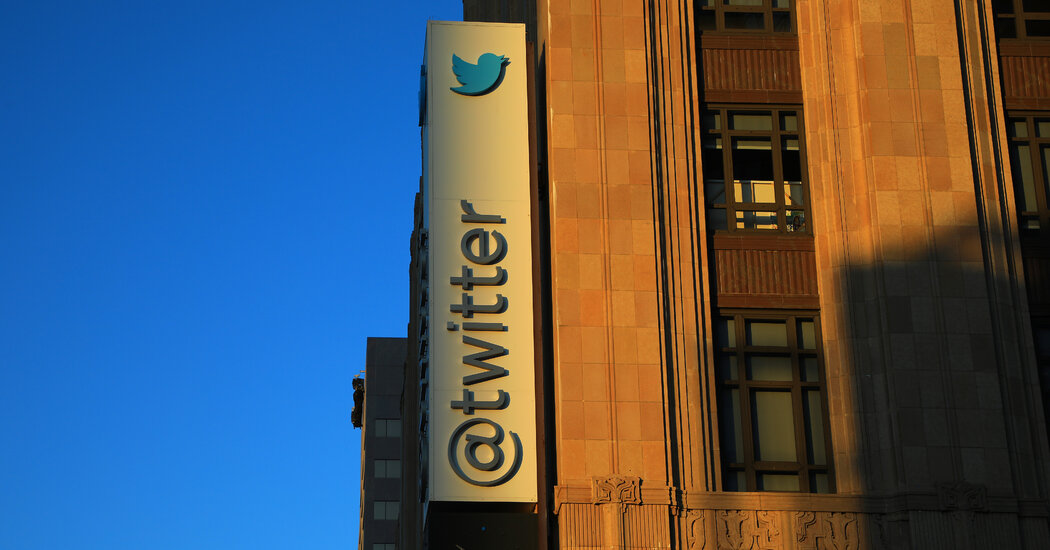SAN FRANCISCO — Twitter on Monday said that it had removed more than 70,000 accounts that promoted the QAnon conspiracy theory in recent days, as the company widened its crackdown on content that could incite violence after barring President Trump from its service last week.
Twitter, which carried out the suspensions over the weekend, said it acted to clamp down on posts that have “the potential to lead to offline harm.” It added that many of the users who were removed had operated multiple QAnon accounts, driving up the total number of accounts that were taken down.
“These accounts were engaged in sharing harmful QAnon-associated content at scale and were primarily dedicated to the propagation of this conspiracy theory across the service,” the company said in a blog post.
Social media companies have rushed to distance themselves from the violent mob attack at the Capitol building last week, which Mr. Trump had stoked in social media posts and public comments. After the rampage, Twitter and Facebook locked Mr. Trump’s accounts, before ultimately barring him from their services and cutting off the president’s megaphones.
Other social media platforms, such as Snapchat and Reddit, have also moved to limit Mr. Trump and toxic speech that might inspire people to violence in recent days. Facebook and Twitter have since expanded their actions. On Monday, Facebook said it would begin removing any content that referred to “Stop the Steal,” a rallying cry for Trump supporters who believe the false claim that the election was stolen from Mr. Trump.
Twitter said it would also deepen its crackdown on misleading and false information about the presidential election. Users who persistently violated its civic integrity policy, which forbids users from spreading content that discourages voter participation or misleads about the outcome of an election, would face permanent suspension, Twitter said.
Facebook and Twitter’s actions have been praised by liberals and others, but have also raised questions about the power of the companies over online discourse.
The QAnon conspiracy theory has long been potent for Mr. Trump. Its believers position Mr. Trump as a hero who is trying to eradicate a global elite of Satan-worshiping pedophiles. One woman who breached the Capitol last week and was shot and killed, Ashli Babbitt, was a QAnon believer.
While the conspiracy theory has festered online for years, the social media companies only moved in recent months to take down content related to it. Last August, Facebook started establishing policies that barred QAnon groups that called for violence, before expanding the move in October by saying it would remove any group, page or Instagram account that openly identified with QAnon.
In July, Twitter banned 7,000 QAnon accounts and blocked topics related to the conspiracy theory from appearing in its trending topics. But the theories have persistently re-emerged on Twitter and other social media platforms, leading to online harassment and physical violence.
The elimination of tens of thousands of QAnon accounts, combined with the routine removal of bots and spammers, caused noticeable fluctuations in some Twitter users’ follower counts, the company said.
That led some users — such as the former White House press secretary Sarah Huckabee Sanders and a Florida congressman, Matt Gaetz — to speculate that Twitter was covertly cutting them off from their followers because of their political beliefs.
After Twitter banned Mr. Trump from the platform, some of his supporters called for a protest outside the company’s San Francisco headquarters on Monday. City workers set up barricades and police stood guard to prevent any disturbances. But their preparations were ultimately not necessary: The protest drew only one attendee.
Source: Read Full Article
